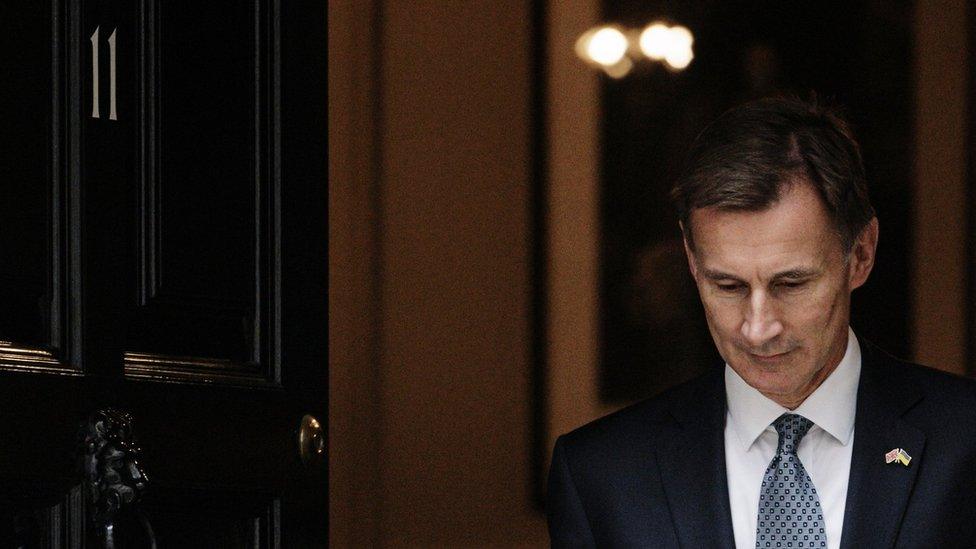Autumn Statement: Jeremy Hunt seeks stability but voters will feel poorer
- Published
- comments

The country has been on a rollercoaster when it comes to government economic policy.
It is a couple of short months since Kwasi Kwarteng announced the most significant tax cutting budget in decades. The biggest tax cuts were for those earning the most.
Today, despite the same party being in power, the picture is very different.
Tax cuts have been replaced by tax rises. The priority is back on protecting those on the lowest incomes.
The highest income tax rate was supposed to be scrapped - now more people are going to be paying it.
You could be forgiven for feeling a bit dizzy at the end of this particular ride.
But are things going to be a bit calmer now? And what will it cost us?
Jeremy Hunt, who replaced Mr Kwarteng last month, wanted to do one thing above all else as chancellor: restore stability.
That's why we've heard so much about difficult decisions and balancing the books in recent days.
There will be spending squeezes in many areas. Budgets won't go up as much as thought.
That will mean hard decisions for some government departments (though maybe not as hard as they could have been and most will come after the next general election).
Tax will go up.
Freezing thresholds means pay increases in the next few years won't go as far as they would have.
The biggest burden falls on those earning more than £125,000 - the government's calculation is that people will think that's fair in tough times.
The government will continue to subsidise energy bills.
But it is cutting back on the level of support to save cash - meaning for millions of households, bills will go up hundreds of pounds from April.
The government has made political decisions to prioritise certain things: increasing pensions and benefits, increasing NHS spending and more money for schools.
It has been decided that cost of living support should be more targeted on those on lower incomes.
But what might be the most striking thing from today is how it crystalises what the economic situation means for us all.
The independent Office for Budget Responsibility figures hammer this home: household disposable incomes will fall 7%.
It will take another five years before the pound in our household pocket is back to where it was last year.
We are going to feel poorer.
Some groups in society will feel even more of a squeeze after today - with those higher energy bills and more tax eating into pay increases.
Remember the squeezed middle? People who aren't poor enough to qualify for support but aren't rich enough not to worry? We might hear more about them soon.
And that will be the backdrop to the political debate in the run up to the next general election.